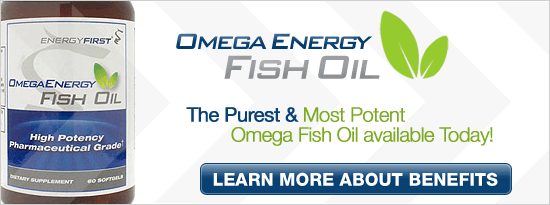Lately there has been much excitement and talk about the importance of getting enough omega 3 fatty acids in our diets to maintain healthy bodies and live long, high-quality lives. With the excitement comes the debate about which source is the best source for getting these powerful and fabulous little health optimizers into our bodies -- specifically flaxseed oil vs fish oil.
So why the fish oil vs flaxseed oil debate?
There are two natural sources of omega 3 fatty acids -- those that come from marine animals and those that come from plants. The omega 3s that come from marine animals are DHA and EPA. EPA (eicosapentaenoic acid) helps the body lower inflammation which protects against heart disease, kidney disease, rheumatoid arthritis, inflammatory bowel disease, psoriasis, eczema and asthma, to name a few. While DHA (docosahexaenoic acid) is needed for our brains to function. Pretty important stuff!
The omega 3 that comes from plants is ALA (alpha-linolenic acid), which is then converted by your body into the DHA and EPA. Which brings us to the main point in the flaxseed oil versus fish oil debate: With flaxseed oil, your body needs to take an extra step to convert the DHA and EPA from the ALA using enzymes.
With fish oil, the EPA and DHA are already there. And some people don't even have the necessary enzymes to get DHA and EPA from ALA at all, rendering the flax totally useless. (Women tend to have an easier time doing this conversion.) Even the people who have the enzymes don't have a lot, so sometimes only 10 - 20% or the ALA consumed is turned into EPA and DHA.
So basically, you need a lot more flaxseed oil than fish oil to see the omega 3 benefits omega 3 benefits to your health to your health. (You probably need about six flaxseed oil capsules to get the same amount of DHA and EPA as you would with one fish oil supplement capsule.)
What about toxins in the fish oil vs. flaxseed oil?
The next point in the fish oil versus flaxseed oil question is that fish often contains high levels of contaminants, like mercury, that can be significantly bad for humans. (Non-orgnaic flaxseed may contain pesticides but the problem is not significant.)
High quality fish oil supplements, however, are filtered in such a way that the toxins are removed making this a mute point if you take the supplements. Also, there are certain types of fish that are considered safe because they have low levels of contaminants, including fresh and canned salmon, herring, pilchard, sardines and rainbow trout. The younger the fish the fewer the contaminants as well, although that's much harder to control.
The toxins can be so bad in some fish that it is recommended that pregnant women and children not eat them. Again high quality fish oil supplements that are contaminant-free can be an option. And back to the flax vs fish debate, some experts also recommend that pregnant women stay away from flaxseed oil as it can influence estrogen and other hormones. Post-menopausal women on the other hand don't have to worry about this and can greatly benefit from flaxseed oil.
Another small point in the flaxseed vs fish oil debate is that flaxseed oil cannot be heated. If it's heated it creates it's own toxins. So if you want to put it in food, no cooking! Also, many flaxseed oil processors use heat to prepare the flaxseed oil. Only the cold-pressed flaxseed oil and unrefined flaxseed oil is okay. Also, some flaxseed oils go rancid after a while so be sure yours is fresh by watching the expiration date.
A pro-flaxseed point is that since your body processes the DHA and EPA it will never make too much so you never risk the negative side effects that you might experience if you had too much DHA or EPA. Another pro for flaxseed oil is that your body needs ALA to make other omega-3s, even when it gets enough EPA and DHA from fish or fish oils.
A drawback for both is that people with congestive heart failure should take omega-3s only with the full knowledge and active supervision of their physician.
Flaxseed Oil vs. Fish Oil -- You Decide Fish Oil Pros
More effective. DHA and EPA already there. No need to convert it from ALA like with flaxseed oil. So it's more effective. And you don't need as much. Also, some people can't process it at all.
The only choice for some. Some people -- usually those in less-than optimal health -- can't process the ALA in flax at all. They need to get their DHA and EPA from marine-derived fatty acids.
Proof. Tons of studies show that marine-based fish oil keeps you healthier and living longer. There are studies using flax too, just not as many.
Flaxseed Oil Pros
Veggie and vegan friendly. It's a seed. Enough said.
Your body needs the ALA. Your body uses the ALA to make other necessary fatty acids that you don't get from fish oil.
No marine toxins. If you go for organic flaxseed that is cold-pressed or unrefined, as in our Omega Oil Blend.
Never too much, no side effects. Your body processes the EPA and DHA and it won't overdo it.
Good for the girls. Women have an easier time converting to EPA and DHA. And post-menapausal women respond even better to flax.
If you're looking for optimum health, you might want to use both flaxseed oil and fish oil -- regular fish oil supplements and fresh fish for EPA and DHA, combined with our Omega Oil and Omega Mix for the ALA.
Made your decision? Get started today with high quality fish oil capsules (or liquid fish oil supplement) and our Omega Oil Blend to use on your salads or to add to a shake. You can also use our Omega Mix Blend in your shakes, on yogurt, on salads, or anywhere that you need an omega boost.















